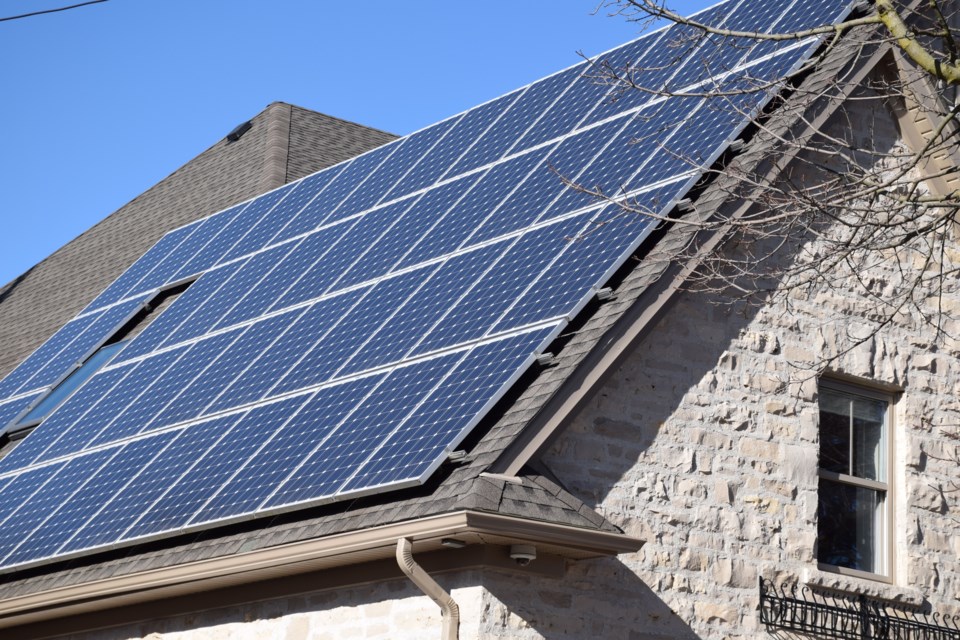A Taykwa Tagamou Nation's project aims to help community members save money on electricity bills over the next three decades.
The $2.04 million Community Solar Microgrid project is currently in Phase 2.
Over 30 years, the project is expected to produce 16.5 GWh of clean energy and save about $4 million in electricity bills, according to the community's newsletter.
Coun. Derek Archibald said Phase 1 of the project has been completed.
It included the installation of solar panels on band-owned buildings with battery storage to create a microgrid. The project sites included the public works garage, the Healthy Babies building, the community complex, the water treatment plant and the lands and resources building.
Currently, the Healthy Babies and the public works buildings are producing solar energy. The remaining sites need to undergo testing and inspections by Hydro One, said Archibald.
With the pandemic restrictions, the project, which uses the local labour force and out-of-region contractors, has slowed down, he said.
For Phase 2, the plans are to power 33 residential homes by installing solar panels on the roof or on the ground. The first 20 homes will be connected as of June 2021, with the remaining houses powered by early September, according to Archibald.
The community received $1.56 million in grant funding for the project, $1.36 million of which was secured through the Small Communities Fund (SCF) and $200,000 through Ontario’s Independent Electricity System Operator (IESO) Indigenous Energy Projects Program.
The whole idea started in 2015 when the community was facing issues with hydro bills. That was before the First Nation's Delivery Credit was introduced by the province two years later.
“People were getting $1,200 hydro bills each month. It was either pay for groceries or pay for the hydro bill. We had a lot of community members reaching out to the band for support with their bills,” Archibald said. “And we noticed it and we met with Jazz Solar and we told them our issues, so we came up with the idea.”
In the past, the community paid more in delivery charges than in consumption, said Archibald.
“Now, each home averages about $200 to $300 a month,” he said. “It’s typically higher than off-reserve houses.”
With the funding from the IESO, the community also held training and conducted a feasibility study to inspect the roofs and determine whether to install the panels on the roof or on the ground.
Besides some minor setbacks with collecting information and the pandemic-related delays, the whole process went smoothly, Archibald said.
“I think everybody is excited to see the project complete and to see the benefit,” he said.



